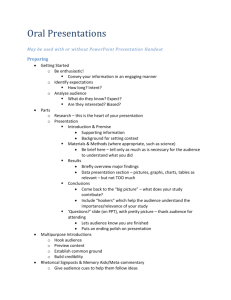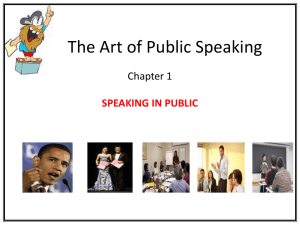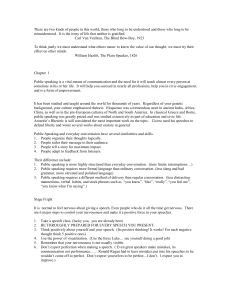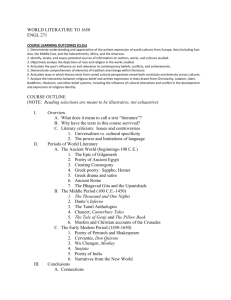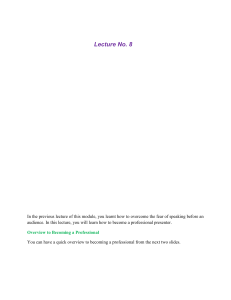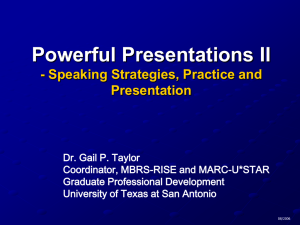Chapter 1
advertisement
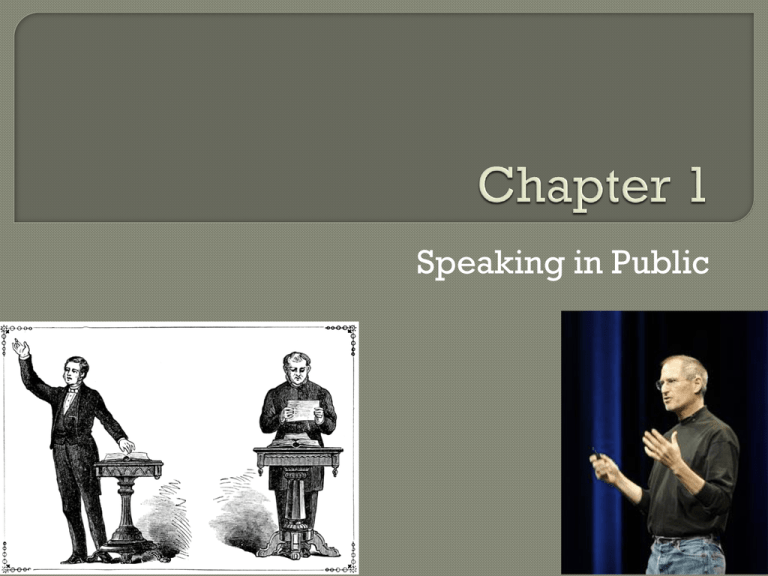
Speaking in Public “Grand oratory” Job Interview Class Lecture Civic Engagement Egyptian Papyrus Eloquence praised by many ancient cultures Classical Greek & Roman periods On Rhetoric arguably the most important and influential work in the communication discipline • e.g. ethos, logos, & pathos In a word… persuasion More specifically, rhetoric involves persuading through the use of language and other symbolic codes. Similarities • Organize thoughts logically • “Tailor” messages to audiences • Telling a story for maximum impact • Adapting to listener feedback Differences • Public speaking is more highly structured • Public speaking requires more formal language • Public speaking requires a different method of delivery IT’S OK TO BE NERVOUS! The point is not to experience zero nervousness Adrenaline Positive Nervousness Acquire experience Preparation! Nervousness isn’t inherently visible Writing a speech is a lesson in critical thinking Researching and organizing builds and shapes opinion Important aspect of education in ancient cultures The world is incredibly diverse • Different customs and frameworks exist for how persons perceive communication acts “The belief that one’s own group or culture is superior to all other groups or cultures” • Has the capacity to instill pride and loyalty, but can also produce jealousy and hostility What are your general impressions of Gladwell’s use of narrative? Do you feel Gladwell adequately connected his story to the point of the address? Did you find his performance effective? Why or why not?


